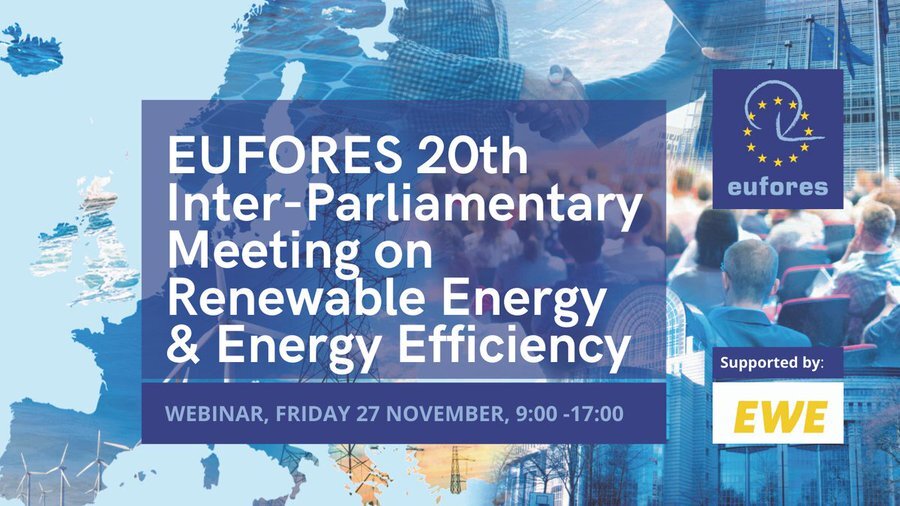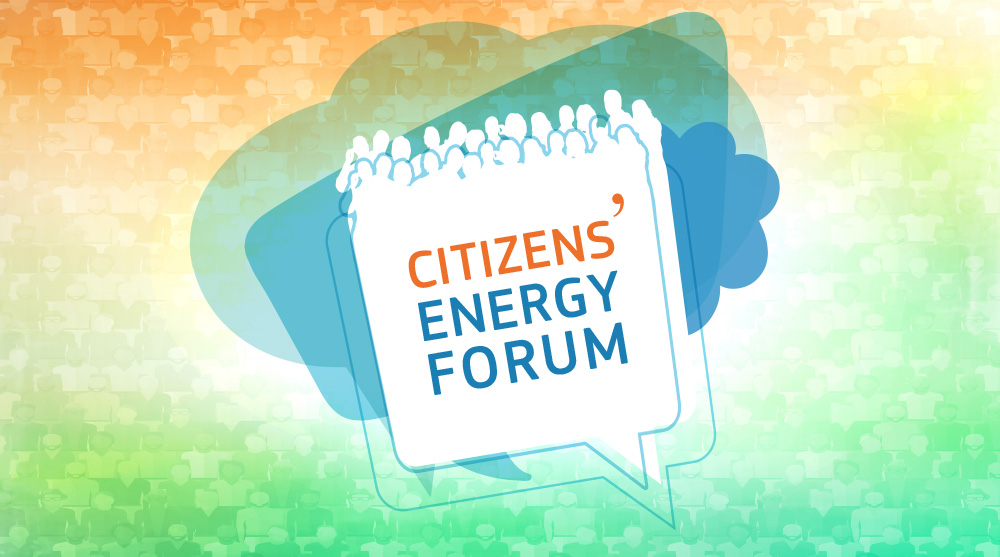BPIE: On the way to a climate-neutral Europe – Contributions from the building sector



On 27 November EU-ASE president Monica Frassoni participated in the 20th edition of the annual Inter-Parliamentary Meeting on Renewable Energy and Energy Efficiency of the European Forum for Renewable Energy Sources (EUFORES). The conference was held as a Pan-European Parliamentary Webinar.
President Frassoni took the floor during the session “EU Energy Efficiency Policy Update and New Narratives to drive Energy Efficiency“, moderated by Daniel Becker, Director Energy at Guidehouse. Speakers included Carlos Sanchez Rivero, Team Leader Energy Efficiency Finance, European Commission DG Energy; Members of the European Parliament Ciaran Cuffe, Katalin Cseh and Nicolas Gonzalez Casares; Christiane Egger, Deputy Manager, Upper Austria Energy Agency; Adrian Joyce, Secretary General, EuroACE.

This short paper outlines the inputs of the European Alliance to Save Energy to achieve a green economic recovery, resilience and long-term sustainability in the aftermath of the Covid-19 pandemic.
These include spending criteria and quota that should be applied in both the Recovery and Resilience Facility Regulation (RRF), currently being negotiated by the European Parliament and Council, as in the National Recovery and Resilience Plans (NRRPs).
The paper calls for prioritising investments in areas such as energy efficiency rather than lock-in resources in fossil fuel infrastructures that undermine the achievement of the Union’s climate and environmental objectives.
A key area of intervention to boost energy efficiency and cut CO2 emissions is represented by buildings. In the NRRPs, Member States should priorities cost-effective renovation programmes that foster the quality, rate, and depth of comprehensive renovations.
Technical assistance is also essential to remove the hurdles for local authorities, SMEs and corporate investments to implement energy efficiency projects and renovate the building stock.

by Kamila Waciega, Public Affairs Director for Energy at Veolia, and Ville Niinistö, Finnish Member of the European Parliament and coordinator for the Greens/EFA group in the Committee on Industry, Research and Energy.
In its recent communication on the European Union climate target for 2030, the EU Commission described energy efficiency legislation and policies as essential instruments contributing to the achievement of the new 2030 greenhouse gas reduction.
However, according to the accompanying impact assessment and the evaluation of National Energy and Climate Plans, the EU will surpass its current target for renewable energy by 1.7%, while it will still fail to meet its current 2030 efficiency target by 3%.
A similar result is expected for the energy efficiency target for 2020.
As the Commission is in the process of revising the Energy Efficiency Directive (EED), it is crucial to seize this opportunity to address the reasons for such an outcome of current energy efficiency policies.
One clear issue is the fact that the renewable energy target is binding at EU level, while the energy efficiency one still is not.
In the current context of dire health, economic and environmental crisis, we cannot afford this discrepancy. We need both higher and nationally binding energy efficiency targets, given all the benefits that investments in this segment can reap.
Following the position of the European Parliament, which asked for 60% emissions reduction by 2030, and taking into account the abovementioned impact assessment, the existing target for energy efficiency needs to be increased to 45% to untap the energy efficiency potential.
To ensure delivery, the EU level target should be made binding.
However, setting a better target is not enough. The most arduous element is providing means to achieve it. Those are regulatory and financial, and both can be ensured through the EED, which is currently planned for revision by June 2021.

On 19 November EU-ASE president Monica Frassoni participated in a panel discussion on “How to finance the clean energy transition in order to maximise benefits to all citizens” in the framework of the 12th edition of the Citizens’ Energy Forum, hosted by the European Commission DG Energy.
This session focused on the significant investment needed to achieve climate neutrality and how the Green Deal is also a clear priority as part of the recovery plan. In particular, it aimed to identify high potential financing opportunities in sustainable energy projects, technologies and market solutions that bring direct benefit to citizens and their local areas while contributing to climate neutrality.
In her intervention, Monica Frassoni highlighted how investing in energy efficient building renovations can greatly benefit European citizens and local areas by reducing energy bills, improving health and air quality, while contributing to climate neutrality.